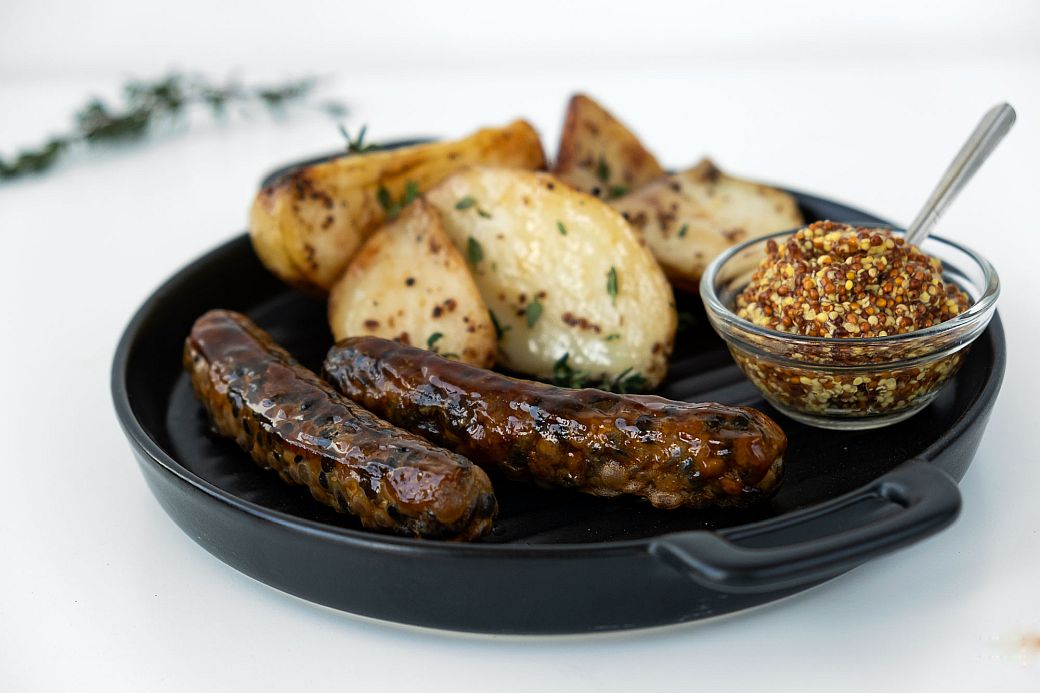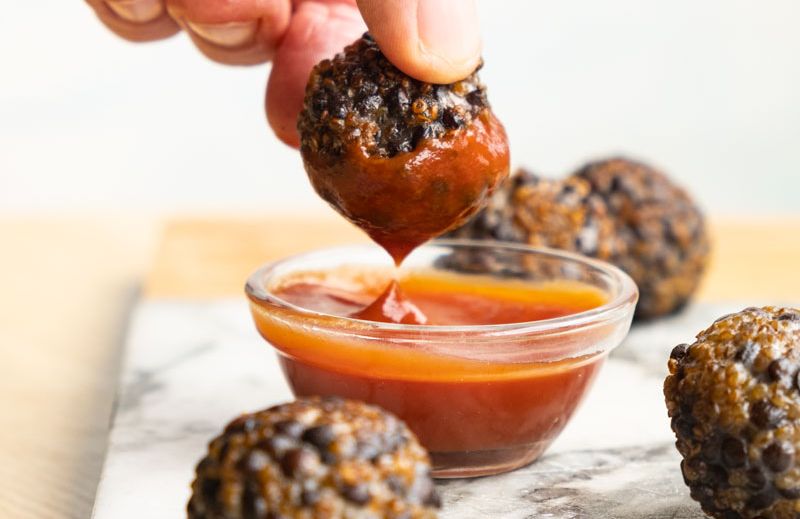Israeli startup Kinoko-Tech has struck a deal with Metaphor Foods, the innovation arm of food ingredients and processing firm Hela, to produce minimally processed fungi-fermented foods across the Asia-Pacific region, starting in Australia.
The agreement includes an undisclosed strategic investment from Metaphor/Hela—which has 10 manufacturing plants and reaches 70 countries—and includes plans for commercial production in Australia starting next year, followed by expansion into Malaysia, Singapore, Indonesia, and New Zealand.
Low-cost solid-state fermentation process
While multiple firms from Quorn and ENOUGH Foods to Meati Foods are growing fungi via biomass fermentation in pricey steel bioreactors to make meat analogs, Kinoko-Tech has patented a lower-cost solid state fermentation process in which it adds its (as yet undisclosed) fungi strains to legumes and grains in stacked trays to create high-protein whole foods with novel tastes and textures.
Its technology, licensed from Yissum, the Hebrew University of Jerusalem’s tech transfer company, creates minimally processed foods that can be used in everything from stir fries and burritos to burgers and snacks with a clean label, said cofounder and CEO Dr Jasmin Ravid, who founded the firm in 2019 with Dr. Daria Feldman and Hadar Shohat.
“We are taking legumes and grains such as black lentils or chickpeas and adding our fungi strain on top and they undergo a transformation over about four to five days. So we’re taking something already healthy like lentils and turning it into a complete protein food.
“The fungus eats away most of the carbohydrate, which elevates the protein content, but also transforms the protein [in the grains or legumes] into a complete protein. The protein is also more bioavailable as the fermentation disintegrates anti-nutrients in the legumes, plus there’s a lot of fiber in there. The other great thing is that the fungus creates structure so you don’t need to use binders—or in the case of protein bars, sugars—to hold everything together. You can also use less sodium.”

‘We’re not just focusing on protein or making one ingredient’
The product can grow in any shape or form depending on the shape and dimensions of the trays or silicon molds it grows in, and doesn’t require expensive downstream processing, said Ravid.
“It’s much cheaper than biomass or precision fermentation and can use any food facility infrastructure and off the shelf equipment, so we have a very different approach to other companies. It’s more traditional fermentation; we’re not just focusing on protein or making one ingredient, but creating nutritious whole goods with locally grown ingredients.”
While it sounds like tempeh, which is made by fermenting soybeans with Rhizopus strains, Kinoko-Tech’s platform supports fermentation with multiple strains of fungi, has a longer fermentation time, and delivers products with “a completely different taste and texture,” she claimed. The extended fermentation period also allows for a “significant transformation in nutritional value.”
Kinoko-Tech’s IP covers the use of various fungi strains in its fermentation process; however it is focusing on one strain in the first instance that already has regulatory clearances in multiple markets, said Ravid.
“Our products comply with local and international food safety regulations, and we collaborate closely with regulatory authorities to ensure full compliance. The strain we use is a carefully selected, edible, non-GMO mycelium with a long history of safe use in food. In the US, we have self-affirmed GRAS (Generally Recognized As Safe) status, and in the EU, our strain is not considered a novel food.”
Strategic partnerships
Under the deal with Hela, which specializes in private label food production, Kinoko-Tech will provide the mycelium starter kit and Hela will source local ingredients for the fermentation, which it will scale up at production facilities in Australia and distribute and sell to local food companies, said Ravid.
“They’ve presented it to several of their clients and had a lot of interest in everything from center-of-the-plate products to snacks. On the manufacturing front, it involves low capex modifications to existing facilities. We expect they will be testing at the end of this year and producing commercially somewhere in the middle of 2025.”
She added: “One of our patents covers how we do the mycelium starter kit, which we keep in-house, and the other covers our solid state fermentation process. We sign licensing agreements with customers that they will only buy the mycelium starter kits from us.”
Kinoko-Tech is also talking to other strategic partners about setting up similar arrangements in other markets including Europe and the US, said Ravid. “We can do this by region or by category.”






